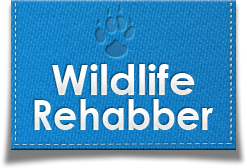Category: Waterfowl Info
Ducklings In The Courtyard
When mallards begin nesting, they select a safe, seclude spot to hatch their eggs. An enclosed courtyard seems like the ideal location because few predators can enter and the ducks can fly in and out easily. However the ducks fail to recognize that this perfect spot will also be a trap for their ducklings, who … Continue Reading
Why Male Mallard Ducks Attack Female Mallard Ducks
It’s spring. Love is in the air. Ducks are pairing off and preparing to start new families. But something is definitely amiss. Why are groups of male mallards attacking a single, lone female mallard? Sex Ratios When mallards hatch and when the adult mallards migrate in fall, the ratio of male to female stays near 50:50. This … Continue Reading
Ducks, Ducklings (and other wildlife) In The Pool
Ducks In The Pool Imagine how happy those ducks are; you were nice enough to provide them with a wonderful pool oasis, surrounded by great landscaping and safely enclosed from predators. It just didn’t occur to them that you didn’t do it for them. They’ve learned from repeated visits that it is a safe place to … Continue Reading
Candling Eggs
Before Candling Eggs… The information on this page is made available specifically for determining the stage of egg development in duck or goose eggs for the purpose of determining whether to intervene if it is suspected that the adult is no longer returning (to see if the eggs should be taken to a permitted wildlife rehabilitator) … Continue Reading
Incubators
Incubators are a vital component in caring for neonatal mammals, hatchling birds, other orphaned wildlife, and eggs. Most very young animals need supplemental heat in order to survive. Fertile eggs also need constant heat (and humidity) in order to properly develop. The type of incubator to use is dependent on its intended purpose. Extremely young … Continue Reading
If You Find An Orphaned Duckling
Thank you for intervening on behalf of this baby. The fact that you have taken the first step will help ensure that this baby may have an opportunity to survive. Like you, wildlife rehabilitators volunteer to help wildlife when assistance would not normally be available. Ducklings may be orphaned for many reasons: Late hatching … Continue Reading
Emergency Care
Stabilizing/Transport/Emergency Information Once you have determined that this wild bird or mammal needs help, you should confine the bird or mammal and immediately contact a wildlife rehabilitator by phone. Your personal safety should always be a key factor. Always take appropriate measures to prevent personal injury from bites or coming in contact with saliva or other … Continue Reading
Raising Muscovy Ducklings
Please be advised that federal regulations prohibit the release of domestic waterfowl. If you are raising muscovies, ensure that you are able to keep them or that you can secure permanent homes for them Housing: under 3 weeks old (under 6 inches in length): In a small indoor cage with access to a heating pad … Continue Reading
Duck – Goose Egg And Nest Information
Mallard Duck And Goose Nesting Behavior Information Males and female mallards and geese pair up in late fall. Nesting begins in early to mid Spring. Duck and goose nests are usually made away from the duck or goose’s main body of water. The male and female will scout out the nest site together, looking for … Continue Reading
